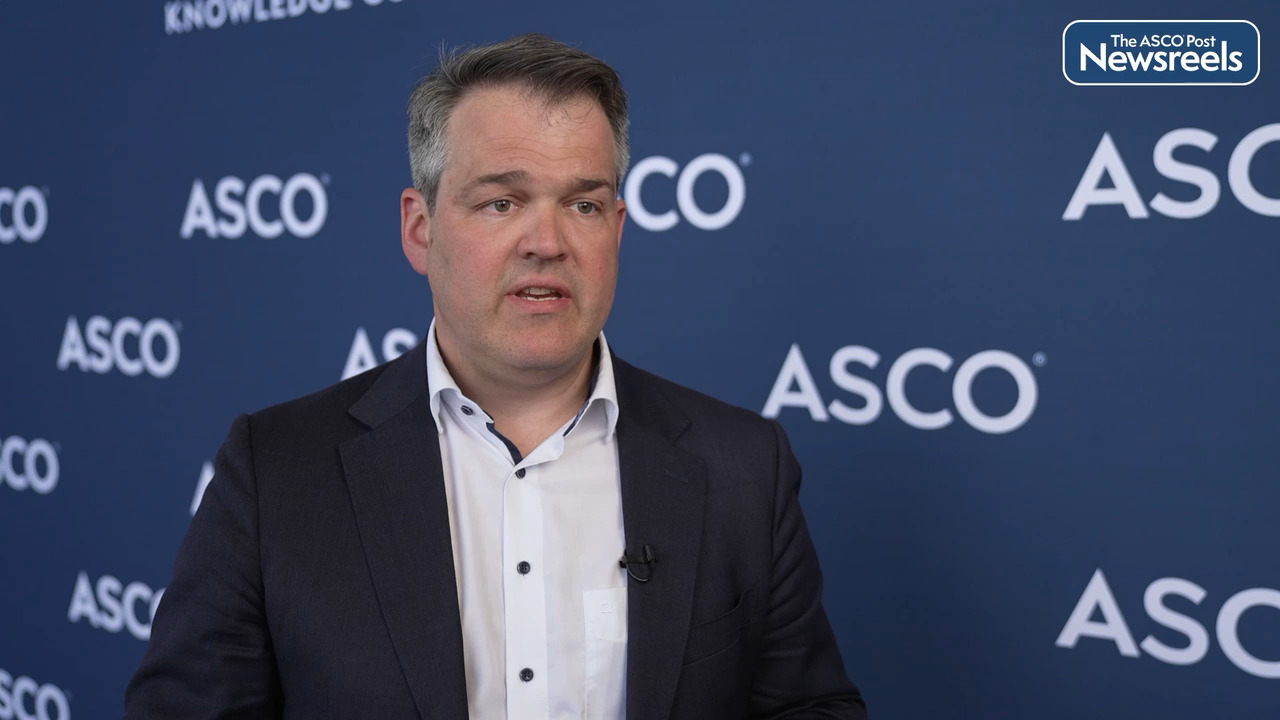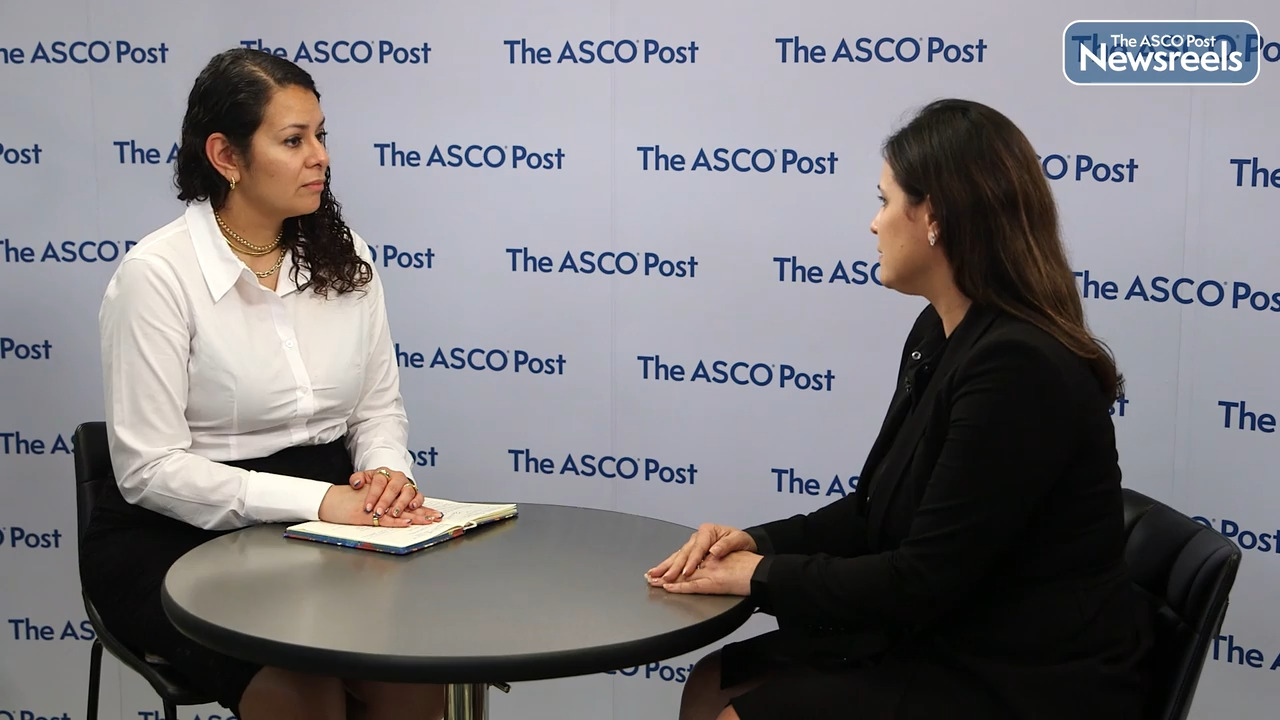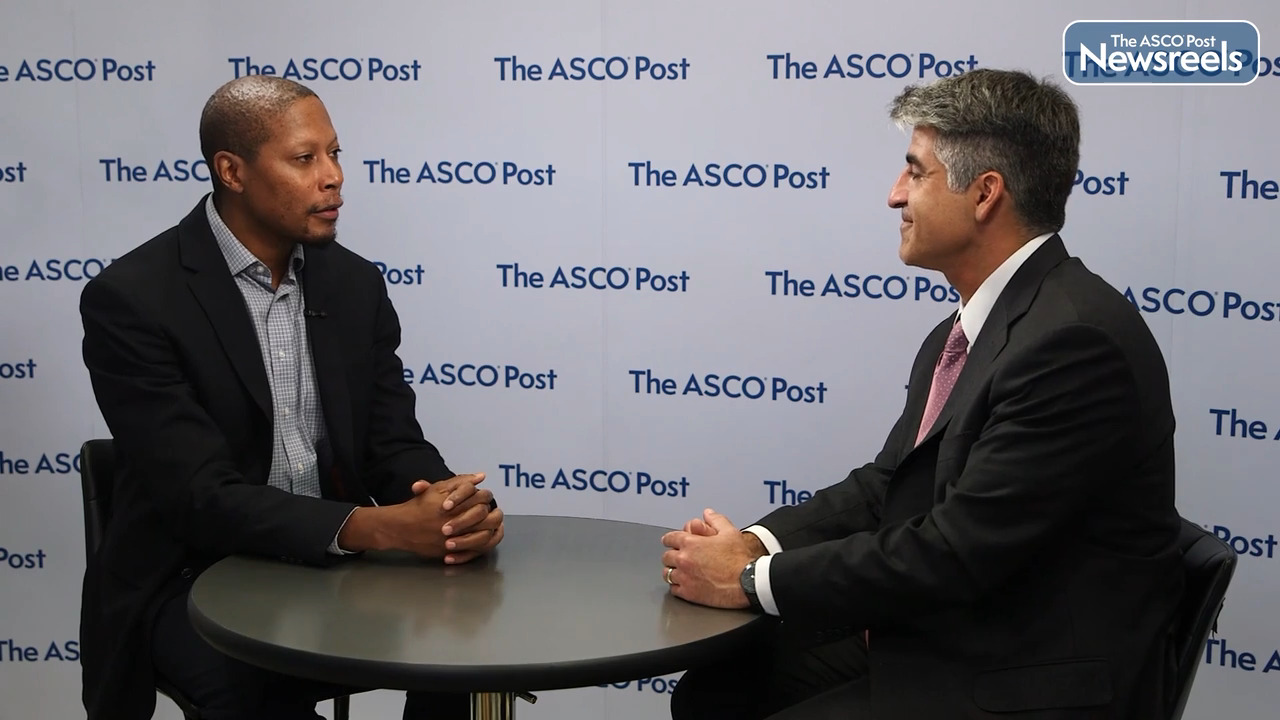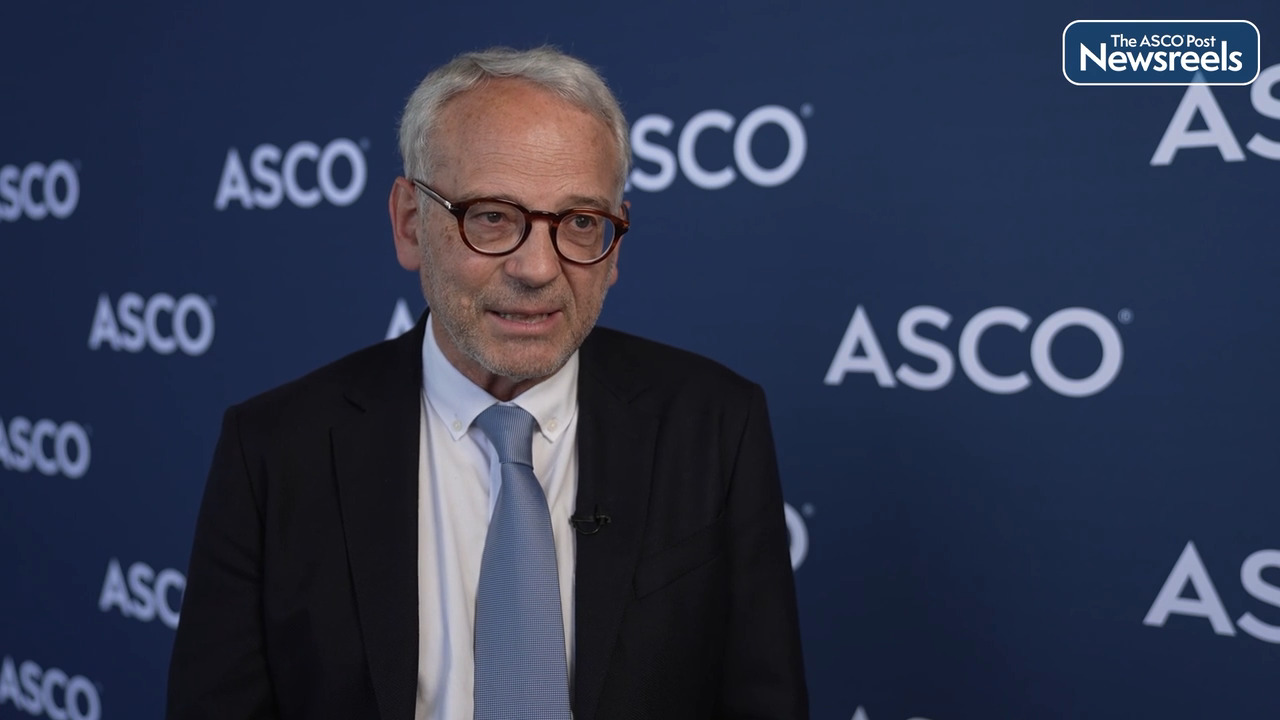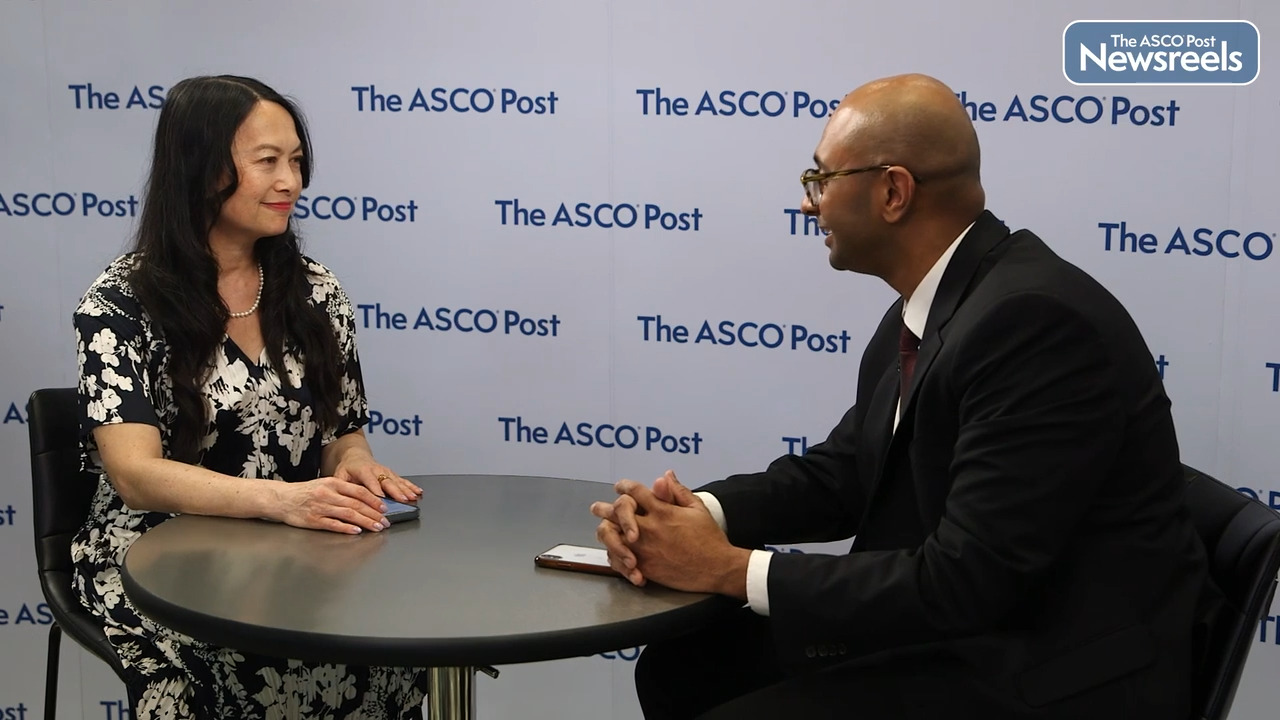Catherine C. Coombs, MD, on B-Cell Malignancies and Long-Term Safety of Pirtobrutinib
2023 ASCO Annual Meeting
Catherine C. Coombs, MD, of the University of California, Irvine, discusses prolonged pirtobrutinib therapy, which continues to demonstrate a safety profile amenable to long-term administration at the recommended dose without evidence of new or worsening toxicity signals. The safety and tolerability observed in patients on therapy for 12 months or more were similar to previously published safety analyses of all patients enrolled, regardless of follow-up (Abstract 7513).
Transcript
Disclaimer: This video transcript has not been proofread or edited and may contain errors.
Catherine C. Coombs:
BTK has proven to be an invaluable target of inhibition for the treatment of a number of B-cell malignancies. However, the use of BTK inhibitors is dependent upon their continuous administration. Therefore, safety and tolerability are paramount importance to maintain maximal efficacy. In this abstract, we reviewed the long-term safety data of Pirtobrutinib from the Phase 1/2 BRUIN trial. The trial design enrolled patients with a number of B-cell malignancies. The entire safety population was over 700 patients. However, in this post-hoc analysis, we reviewed the patients on treatment for over a year, which amounted to 326 patients. As one would expect, this population was enriched for patients with the more chronic B-cell malignancies, and so the largest population was CLL and SLL though there were about 40 patients with mantle cell lymphoma and Waldenström's macroglobulinemia. The safety aspects that were reviewed included all of the common side effects from this drug, which fortunately were very uncommon, especially grade three or higher AEs.
In reviewing treatment exposure adjusted AE rates, what we determined was that in comparing patients on the drug for over a year compared to the entire safety population, there does not appear to be an increased risk in toxicity for patients that are on the drug for longer periods of time. This is further supported by the low incidences of discontinuation for the drug, especially in those patients who were on the drug for over a year where only 1.2% of patients discontinued due to side effects. In addition, regarding the class effects of BTK inhibitors that we worry about, the incidences of atrial fibrillation, bleeding, and hypertension were all extremely low and did not suggest a temporal relationship to Pirtobrutinib. In conclusion, we can see that now with long-term administration of Pirtobrutinib, this drug is exquisitely safe and can inhibit its target, BTK, for maximal benefit to our patients with these malignancies.
The ASCO Post Staff
Sebastian Stintzing, MD, of the Charité Universitätsmedizin Berlin, discusses results from the phase III FIRE-4 study, which showed that liquid biopsy is clinically relevant in verifying mutational status in patients with metastatic colorectal cancer and is efficacious in first-line treatment of FOLFIRI and cetuximab for patients with RAS wild-type disease (Abstract 3507).
The ASCO Post Staff
Narjust Florez, MD, of Dana-Farber Cancer Institute, and Ticiana Leal, MD, of Winship Cancer Institute of Emory University, discuss the use of tumor treating fields therapy, in which electric fields disrupt processes critical for cancer cell viability. Already approved by the FDA to treat glioblastoma and mesothelioma, the treatment has extended overall survival in this phase III study of patients with metastatic non–small cell lung cancer (NSCLC) with progression on or after platinum-based chemotherapy, without exacerbating systemic toxicities (Abstract LBA9005).
The ASCO Post Staff
Tycel J. Phillips, MD, and Alex F. Herrera, MD, both of the City of Hope National Medical Center, discuss results from the SWOG S1826 study, which showed that nivolumab and AVD (doxorubicin, vinblastine, and dacarbazine) improved progression-free survival vs brentuximab vedotin plus AVD in patients with advanced-stage classical Hodgkin lymphoma. Longer follow-up is needed to assess overall survival and patient-reported outcomes. This trial may be a key step toward harmonizing the pediatric and adult treatment of advanced-stage disease (LBA4).
The ASCO Post Staff
Thierry Conroy, MD, of the Institut de Cancérologie de Lorraine, discusses phase III findings from the PRODIGE 23 trial, showing that neoadjuvant chemotherapy with mFOLFIRINOX followed by chemoradiotherapy, surgery, and adjuvant chemotherapy improved all outcomes, including overall survival, in patients with locally advanced rectal cancer compared with standard chemoradiotherapy, surgery, and adjuvant chemotherapy (Abstract LBA3504).
The ASCO Post Staff
Cathy Eng, MD, of Vanderbilt-Ingram Cancer Center, and Thejus Jayakrishnan, MD, of the Cleveland Clinic Taussig Cancer Institute, discuss significant differences in the citrate cycle, a core pathway of cellular metabolism associated with colorectal cancer. Metabolomic differences impacted by environmental exposures (arginine biosynthesis and dietary red meat) were also noted, suggesting possible links with younger age of onset in this disease (Abstract 3510).
